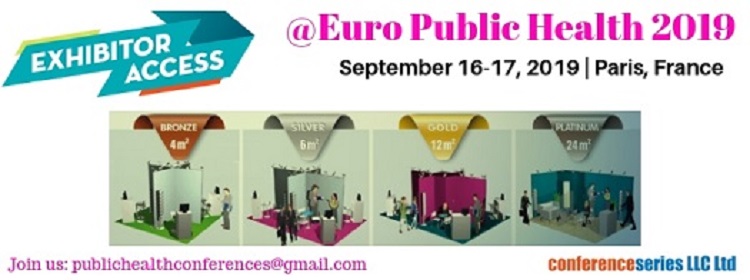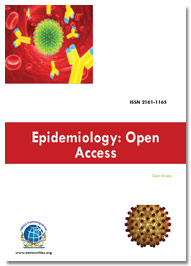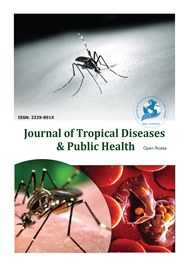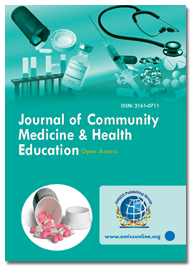Theme: Exploring the emerging transitions in Epidemiology and Public Health
Public Health Health Conferences - 2020
European Conferences of Conference Series is glad to invite all the experts around the globe working in the arena of public health professionals, nurses and healthcare experts to the upcoming 2nd European Conference on Epidemiology & Public Health (Euro Public Health 2019) during September 16-17, 2019 at Paris, France.
This Euro Public Health 2019 is based on the theme “Exploring the emerging transitions in Epidemiology and Public Health”.
Conference series is hosting the 2nd European Conference on Epidemiology & Public Health (Euro Public Health 2019) at Paris, France during September 16-17, 2019. Euro Public Health 2019 Conference is based on the theme of Exploring the emerging transitions in Epidemiology and Public Health .
Public Health Meeting 2019 welcomes all the Healthcare experts, Epidemiologists, and other medical & clinical experts working the arena of Epidemiology, Public health and related field to this upcoming Euro Public Health Meeting at Paris, France.
Hear, learn and explore the latest research. Present before distinguished global audience. Collaborate, build partnerships and experience Europe (Paris, France). Join the global academic community.
Welcome to the Euro Public Health 2019!
With the amalgamation of peerless speakers of Public health 2019 Conference Series LLC Ltd is privileged to announce its “2nd Euro Public Health 2019” which will be held during September 16-17, 2019 Paris, France. We cordially welcome all the eminent researchers, students and delegates to take part in this upcoming Public health congress to witness invaluable scientific discussions and contribute to the future innovations in the field of Epidemiology and Public health.
Euro Public Health 2019 conference will focus on the latest and exciting innovations in all areas of Epidemiology and Public health which offers a unique opportunity for investigators across the globe to meet, network, and perceive new scientific innovations. This year’s annual congress highlights the theme,“ Exploring the emerging transitions in Epidemiology and Public Health ” which reflects the innovative progress in Epidemiology and Public health. The two days conference includes workshops, symposiums, special keynote sessions conducted by eminent and renowned speakers who excel in the field of Epidemiology and Public health which include: Nutrition and Health, Diabetes & its Complications, Obesity and Health Risks, Metabolism and Metabolic Disorders, Child and adolescent health, Chronic and Infectious Diseases, Oral & Dental Health, Mental Health and Mental Disorders, Healthcare & Hospital Management, Reproductive Medicine & Women’s Health, Cardiac Disorders & its complications, Primary and Occupational Health, Nursing and Health care, Cancer Epidemiology, Health Care Technologies and Tele-Medicine, Environment, Climate and Urban health, Public Health Policy and Administration, Health systems and economics, Veterinary Public Health, Healthcare and Alternative Medicine.
This Euro Public Health 2019 invites all the Academic Scientists, Leading Epidemiologists, Surgeons, Primary Health care specialists, Pharmaceutical Industrial Delegates, talented young scientists, and student communities across the globe where all the aspects of Epidemiology, Public health.
Benefits of Attending:
- Exchange ideas and network with leading healthcare experts, epidemiologists, researchers, clinicians, public health professionals and researchers from more than 40 countries.
- Discuss ways to collaborate in putting quality initiatives in place throughout the Epidemiology and Public health study and Epidemiology and Public Health.
- Participants can gain direct access to a core audience of professionals and decision makers and can increase visibility through branding and networking at the conference.
- Learn and discuss key news and challenges with senior level speakers.
- With presentations, panel discussions, roundtable discussions, and workshops, we cover every topic from top to bottom, from global macro issues to strategies to tactical issues
About Hosting Organization: Conference Series
Conference Series is the world’s leading specialist in organizing Academic, Scientific and Business conferences, meetings, symposiums and exhibitions in different verticals and horizontals like Medical, Pharma, Engineering, Science, Technology and Business to promote scientific research. Every year we host more than 3000+ global events inclusive of 1000+ Conferences 1000+ Symposiums 1000+ Workshops in USA, Europe, Middle East and Asia with the generous support and cooperation from our 30000+ Editorial Board Members, 1000+ Scientific Societies. All the conference proceedings are published in the special issues of our 700+ Open Access International Journals with the DOI provided by CROSSREF.
Target Audience:
- Academic researcher
- Epidemiologists
- Healthcare experts
- Researchers
- Medical colleges
- Training institute
- Epidemiology Societies & Association
- Medical & Pharmacy Companies
- Software development companies
- Business entrepreneurs
- Manufacture medical devices & companies
The European Epidemiology & Public Health Congress aims to discuss the comprehensive overview of the latest developments, innovations, challenges and strategies in the arena of Public Health ranging from epidemiologists, nutritionists, clinicians, public health practitioners, business professionals, foundation leaders, direct service providers, policymakers, researchers, academicians, students and many more.
Many eminent Epidemiologists, Heath practitioners, researchers, scientists, and experts from the Hospitals, Academia, and Industries will participate in this Public Health Congress to share their research experience via presentations, interactive case studies, Oral Presentations, Poster Presentations, Workshops, Symposiums, One to one meetings, Networking sessions, e-posters, and Plenary sessions, B2B sessions etc.
To recognize the Young Researchers and expert individuals exhibited outstanding research in Health care, Epidemiology, Public health, Nutrition and other related expertise of Public Health, Euro Public Health 2019 Conference is presenting the Young Research award through its Young Researcher Forum (YRF), Best Poster Award, and Best Presentation Award.
This Euro Public Health Congress offers the best international platform to share the research knowledge among peer global experts, questions raised in the field of Public Health can be resolved through the consensus based expert opinions presented here at this esteemed Congress.
In addition to the informational speakers, participants will get an opportunity to interact with and learn from our Business Partners, Exhibitors and Sponsors.
We Welcome all to join us at this upcoming rewarding experience at Paris, where you can interact with top experts, engage yourself in a dedicated scientific networking environment, expand your knowledge and enhance your collaborative research in the field of Public Health Professionals, Health care administrators, Physicians, Doctors, Researchers, Nutritionists, epidemiologists, pharmacists, microbiologists, clinicians and researchers and many more.
Scientists and researchers related to the broad areas of Health care, Epidemiology & Nutrition are most likely to attend Euro Public Health 2019 and utilize the scope of extending their skills, and their work on basic and significant applications. The Euro Public Health 2019 conference will be useful to participants from both the Industry and Academia working in all the domains of Health care sectors, all other target audience includes:
- Researchers
- Scientists
- Health care experts
- Epidemiologists
- Nutritionists
- Physicians
- Nurse practitioners
- Health care analysts
- Doctors
- Business delegates
- Young Researchers
- Advertising and Promotion Agency Executives
- Professionals in media sector
- Professors
- Students
Euro Public Health 2019 conference brings together experts, leading researchers, scholars, scientists, professors from fields of Health care, Epidemiology, Nutrition, Physicians, Nurse practitioners and other related areas to interact and exchange ideas about the state of the art technologies related to Public health and Epidemiology. The conference will also provide an insightful understanding to the issues arising out of the Epidemiology and Public health and the future concern and remedies from that. Public Health 2019 provides an opportunity to interact with eminent Scientists, researchers, Business Leaders, experts from all over the world. The little effort put by the Euro Public Health Conference 2018 will help in taking a giant step in the field of Health care.
Highlights of Public Health 2019 Conference:
- Meet the Health care experts, Epidemiologists and Nutritionists from 25+ countries around the globe
- Meet your peers and evaluate your research in front of experts
- World-class platform to Exhibit your products and services
- More than 25 presentations from Industry and Academia leader
- One- to-one interaction, B2B, and B2A etc.
- Well organized Scientific Program with 5+ hours of Networking sessions
- Interactive panel discussions and Q&A sessions
- Best Poster Awards, Young Research Forums
- Epidemiology and Public Health
- Nutrition and Health
- Diabetes & its Complications
- Obesity and Health Risks
- Metabolism and Metabolic Disorders
- Child and adolescent health
- Chronic and Infectious Diseases
- Oral & Dental Health
- Mental Health and Mental Disorders
- Healthcare & Hospital Management
- Reproductive Medicine & Women’s Health
- Cardiac Disorders & its complications
- Primary and Occupational Health
- Nursing and Health care
- Cancer Epidemiology
- Health Care Technologies and Tele-Medicine
- Environment, Climate and Urban health
- Public Health Policy and Administration
- Health systems and economics
- Veterinary Public Health
- Healthcare and Alternative Medicine
Track 1: Epidemiology and Public Health
Epidemiology is the division of medicine that deals with the occurrence, conveyance, and conceivable control of infections and different elements identifying with wellbeing. Public Health is a blend of sciences, skills and feelings that is focused on the preservation and improvement of the health of the wellbeing through preventive rather than curative measures. Epidemiology is a necessary part of general wellbeing practice.
Track 2: Health and Nutrition
Nutrition can be categorized as the science which deals with food & it is directly or indirectly related to health. Public Health Nutrition is a significant inclination for people around the world. Nutrition & Wellness depends upon food, care, fitness and atmosphere. Malnutrition is a condition of nutrition in which a person is not eating the diet with sufficient nutrients required for the body. Food safety and Community nutrition is of prime importance as intake of unhealthy diet along with nutritional deficiencies are the major causes of the food borne diseases & deaths.
Track 3: Diabetes & its Complications
Diabetes occurs when the demand and production of the insulin hormone produced by the beta cells of Islets of Langerhans of Pancreas is not completed. Most of these diabetes-related conditions occur because of uncontrolled blood glucose levels and this may lead to a number of short and long-term health complications including heart disease, nerve damage, hypoglycemia, vision problems Cardiovascular diseases, Nerve damage, neuropathy, Kidney damage (nephropathy), diabetic retinopathy, foot damage, skin conditions, hearing impairment, Alzheimer's disease and many more. With good control and living a healthy & active lifestyle, it is possible to live a normal life.
Track 4: Obesity and Health Risks
Obesity is a risk factor for the development of insulin resistance, with pancreatic beta cells compensating for insulin resistance by augmenting insulin secretion. The failure of beta-cells is believed to cause pre-diabetes, a condition that can lead to diabetes. Obesity increases the risk of developing several serious health conditions including: High triglycerides and low high-density lipoprotein (HDL) cholesterol, Type 2 diabetes, High blood pressure, Gallbladder disease, Heart disease, Heart Stroke, Gynecological problems, such as infertility and irregular periods.
Track 5: Metabolism and Metabolic Disorders
Endocrinology is a branch of medicine dealing with the endocrine system, metabolism & its disorders and its specific secretions known as hormones, growth promotion and malignancy. It may lead to Polycystic ovary syndrome, Diabetes mellitus, Hyperlipidemia, Osteoporosis, Lipid Control in Diabetes and Metabolic Syndrome, Growth hormone deficiency and growth disorders, Follicular and Medullary thyroid cancer, Thyroid growths, underactivity/overactivity.
Track 6: Child and adolescent health
Research has demonstrated that adolescent’s programs can decrease the predominance of health risk among young people and positively effect on academic performance. Since they are in developmental transition, adolescents and young adult’s grown-ups are especially sensitive to natural that is, logical or encompassing impacts. Addressing to the constructive advancement of young people encourages their adoption of healthy behaviors and helps to develop a healthy and productive life. Experts in child health and maternal focus on the complex public health problems affecting women, infants and their families.
Track 7: Chronic and Infectious Diseases
Chronic diseases are the major cause of mortality. It mainly includes arthritis, asthma, cancer, COPD, diabetes and viral diseases such as hepatitis C and HIV/AIDS. Examples include Celiac disease, diabetes mellitus type 1, Sarcoidosis, systemic lupus erythematosus (SLE), Sjogren's syndrome, Churg-Strauss Syndrome, Hashimoto's thyroiditis, Graves' disease, Osteoporosis, Addison's Disease, rheumatoid arthritis (RA), Polymyositis (PM), and Dermatomyositis (DM). They can also be treated with steroids. It may also include Communicable and Non-Communicable diseases, Sexually Transmitted Diseases, Genetic diseases, Congenital diseases, Autoimmune diseases, pharmaceutical and microbiological infections etc.
Track 8: Oral & Dental Health
Dentistry is a branch of medicine that comprises of the examination, diagnosis, prevention, and treatment of infections, disorders and states of the oral and dental health. It comprises Dental Tools and Treatment Techniques, Cosmetic Dentistry, Oral Diseases, Periodontal Services and Future Trends in Dentistry, Oral Implantology, Oral diseases and Prevention, Oral Cancer, Current Concepts in Oral Health, Dental sleep medicine, Dental Nursing, Dental Implants and Pediatric Dentistry etc.
Track 9: Mental Health and Mental Disorders
Mental health is a state of psychological well-being or an absence of a mental disorder. It is the psychological state of a person who is functioning at a normal level of emotional and behavioral adjustment. A person struggling with his behavioral health may face stress, depression, anxiety, relationship problems, grief, addiction, ADHD or learning disabilities, Mood disorders, schizophrenia, hallucinations, Eating disorders or other psychological concerns. Counsellors, therapists, life coaches, psychologists, nurse practitioners or physicians can help manage behavioral health concerns with treatments such as therapy, counselling, or medication.
Track 10: Healthcare & Hospital Management
Healthcare Management is related to leadership, supervision, management and administration of health care systems, public health systems and hospitals. Healthcare management usually refers to the management of the business aspects of a clinic or healthcare facility. Hospital management is a facility where various treatments are involved such as medical, surgical, psychiatric, and many more. The hospital manager plays a vital role in hospital management such as it oversees physicians, nurses, and other healthcare professionals in order to make sure that they have everything they need in order to work efficiently.
Track 11: Reproductive Medicine & Women’s Health
It mainly includes: Gynecological Health and Disorders, Pregnancy Issues and Management, Polycystic Ovary Syndrome (PCOS), Menopause & Osteoporosis, Fetal and Maternal Medicine, Infertility & Related Disorders, Surgical Gynecology, Endometriosis, Contraception, Maternal and Child Health, Gynecology & Obstetrics, Breast Cancer, Gynecological Cancers, Reproductive Health, Fertility and Sexual Health, Midwifery and Nursing Practice, STDs & STIs, Heart Diseases in Women.
Track 12: Cardiac Disorders & its complications
Cardiovascular disease (CVD) involves the class of diseases heart or blood vessels. Cardiovascular disease includes coronary artery diseases such as angina and myocardial infarction also known as heart attack. Other CVDs include stroke, heart failure, rheumatic heart disease, cardiomyopathy, congenital heart disease, valvular heart disease, carditis, peripheral artery disease, venous thrombosis, coronary artery bypass grafting, endocarditis, rheumatic heart disease, atherosclerosis, heart transplantation, Open heart surgery, Cardiomyopathies, Adult congenital heart disease, heart valve surgery, Extracorporeal membrane oxygenation (ECMO), Clot busting medicine, Cardio-oncology etc.
Track 13: Primary and Occupational Health
Primary healthcare is the main branch of healthcare system including diagnosis, prevention, treatment and screening. Primary Healthcare is dedicated to serving those who experience a barrier in receiving care. Primary Healthcare provides medical dental, immune health, vaccination, behavioral & mental health conditions before they become serious. Primary Healthcare is the first level of contact that individuals, families, communities have with the healthcare system. Occupational health is a specialist branch of medicine that focuses on the physical and mental wellbeing of employees in the workplace.
Track 14: Nursing and Health care
Public health nursing is the field of nursing which deals with the specialty in Public health. Public health nurses are the community of nurses who are involved in integrating community and who knows well about clinical methods and treatment of health. Quality healthcare and patient safety are the streams which takes care of the health of the patient and his safety.
Track 15: Cancer Epidemiology
The epidemiology of cancer is the study of the factors affecting cancer. The study of cancer epidemiology uses epidemiological methods to find the cause of cancer and to identify and develop improved treatments. Cancers account for approximately 13% of deaths. The most common are lung cancer (1.4 million deaths), colorectal cancer (610,000), liver cancer (700,000), and breast cancer (460,000).
Track 16: Health Care Technologies and Tele-Medicine
Telemedicine is the utilization of media transmission and information technology to give clinical social insurance in healthcare. It is utilized to enhance access to medical administrations that are commonly not reliably accessible in far-off bucolic places. Early types of telemedicine accomplished with phone and radio have been added with video telephony, progressed indicative techniques upheld by circulated customer/server applications, and moreover with telemedical gadgets to help in-home care. It also includes Telemedicine in Disaster Relief, Provides High-Quality care for Prison Facilities, Minimizes absentees in School, Medication Management by Telepsychiatry program.
Track 17: Environment, Climate and Urban health
Environmental health varies from organization to organization, although the basic premise remains the same. It reports all the physical, chemical, and biological factors external to a person and all the related factors which impacts the behavior. It is targeted towards preventing disease and creating health-supportive environments. Global environmental health sustainability includes sustainable health interventions, like water sanitation, health education, hygiene programs and the community investments that can improve the quality of environmental health.
Track 18: Public Health Policy and Administration
Health Economics outcomes are to analyze the burden and etiology of infectious diseases and non-communicable diseases among populations and to gather and disseminate data that will help improve the quality of health safety across borders. Health Economics policies address the critical issues across the global health and facilitate interaction and collaboration across the people.
Track 19: Health systems and economics
Health economics is associated with the value, behavior, efficiency & effectiveness in the production and consumption of health care & health-affecting behaviors such as drinking, smoking etc. Health care policies includes the plans, actions & decisions that are taken to achieve specific health care goals within a society. It involves National Health policy, personal health care policy, Nursing Healthcare policy, pharmaceutical policy, and public health policy such as vaccination policy, tobacco control policy and breastfeeding promotion policy.
Track 20: Veterinary Public Health
Veterinary public health is an element of public health which emphasizes the focus on the application of veterinary science to protect and improve the physical, mental and social well-being of humans. It impacts on human health by reducing exposure to hazards arising from animals, animal products, and their environment. Examples of these hazards include zoonosis, vector borne infections and other communicable diseases, chemicals and drugs used for animals and injuries from exposure to animals.
Track 21: Healthcare and Alternative Medicine
Traditional Medicine is a system of primary health care that includes Acupuncture, herbal medicine, remedial massage, Chinese Medicine, Traditional medicine, Acupuncture, exercise and breathing therapy, diet and lifestyle advice. It also includes Personalized medicine, Traditional Midwifery, Traditional Pharmaceuticals and Biologic Products, Ancient Iranian medicine etc.
Market Analysis for Euro Public Health 2019
Epidemiological reconnaissance is conducted all over to examine the etiological components of disease and causes for spreading and its preventative measures. This conference gives the international platform for recent research on the uprising and re-rising diseases, communicable diseases, Non-communicable diseases. This conference has the extent to be the source of the medical specialty variables like origin, spread and up to date status of different diseases and disorders causing deaths in several nations.
Public health and Epidemiology Research mainly center on the health of the public in collective. It addresses observing and reconnaissance of nutrition grade and nutritional environments in communities or populaces at risk recognizes and investigates behavioral, sociocultural, monetary, political, and ecological determinants of nutrition-related community health. The fundamental goal of public health is the biologic, physical and psychological well-being of the general public by prolonging existence and advancing a healthy standard of living. It incorporates pre-planning of natural and man-made calamities. Numerous health systems around the world integrate public health activities and obligations in a different way, depending on the arrangement, financing, and accessibility of healthcare in population. The main purpose is catching up through decades of health economics and outcomes research (HEOR) experience broadcasting the significance of real-world insights in healthcare determination. HEOR is decisive in taking innovative treatments from the lab to the commercial center. Combining scientific techniques, deep therapy subject information and a practical understanding of the marketplace. Health economists measure multiple types of monetary information: expenses, charges, and expenditures as externalities evolve frequently while taking into consideration health and health care, especially in the context of infectious disease.
The worldwide Pharmacoepidemiology and clinical research market has been evaluated to reach USD 14.2 billion in 2016-2017 and is proposed to reach around USD 22 billion by the year 2021, rising at a CAGR (compounded annual growth rate) of 7.5%, throughout the estimated period 2016 to 2021. The clinical investigation includes the Clinical examination as an element of clinical research that follows a controlled convention. Clinical research is basically performed to assess the safety and efficiency of the newly developed sedate. Clinical test data is obligatory for additional endorsement of the drug and to bring it into the market.
Conference Highlights
- Nursing and Health care
- Primary and Occupational Health
- Cardiac Disorders & its complications
- Reproductive Medicine & Women’s Health
- Healthcare & Hospital Management
- Mental Health and Mental Disorders
- Oral & Dental Health
- Chronic and Infectious Diseases
- Child and adolescent health
- Metabolism and Metabolic Disorders
- Obesity and Health Risks
- Epidemiology and Public Health
- Primary and Occupational Health
- Healthcare Management
- Health systems and economics
- Health and Nutrition
- Public Health Policy and Administration
- Diabetes & its Complications
- Environment, Climate and Urban health
- Health Care Technologies and Tele-Medicine
- Cancer Epidemiology
To share your views and research, please click here to register for the Conference.
To Collaborate Scientific Professionals around the World
| Conference Date | August 19-20, 2020 | ||
| Sponsors & Exhibitors |
|
||
| Speaker Opportunity Closed | |||
| Poster Opportunity Closed | Click Here to View | ||
Useful Links
Special Issues
All accepted abstracts will be published in respective Our International Journals.
- Journal of Community Medicine & Health Education
- Journal of Health Education Research & Development
- Journal of Nutrition & Food Sciences
Abstracts will be provided with Digital Object Identifier by






